Memo to: Oaktree Clients
From: Howard Marks
Re: Political Reality Meets Economic Reality
In 2016 I wrote Economic Reality (in May) and Political Reality (in August), two memos covering subjects I thought were important and timely. In the latter, I summed up Economic Reality as follows:
[It] describes the ways in which economics defines and constrains reality in business, investingand everyday life. Economics establishes the rules of the game and the boundaries of the playing field, and these things can’t be ignored. They can be altered, but not without consequences.
The realities of economics are stark and consistent, but also logical. They aren’t absolute, like the laws of physics (e.g., gravity), but they reliably establish tendencies and limits.
The point is that the field of economics covers the choices people and organizations face; the costs, possible rewards and potential consequences; and how decisions regarding those choices are made. These are the bases on which people enter into economic transactions. More than anything else, perhaps, economics is the study of choice.
Three months later, in Political Reality, I said:
I’ve always gotten a kick out of oxymorons – phrases that are internally contradictory – such as “jumbo shrimp” and “common sense.” I’ll add “political reality” to the list. The world of politics has its own, altered reality, in which economic reality often seems not to impinge. No choices need be made: candidates can promise it all. And there are no consequences. If something might have negative consequences in the real world, politicians seem to feel free to ignore them. . . .
The purpose of this memo is to describe what happens when political behavior collides with economic reality, as illustrated in one area where the government is taking steps – tariffs – and another in which debate among politicians is heating up – restrictions on the capitalist system.
Before I move forward, I’d like to state up front, as I did in Economic Reality in 2016, that I’m not writing to make political judgments or to make any politician or party look bad. But economic pronouncements can’t be separated from the people who make them. If you read through to the end, you’ll see I find something to complain about in the approach of members of both parties.
Tariffs
Tariffs are very much in the news these days, and their complexity renders them ripe for error and thus appropriate for discussion here.
Many people – albeit President Trump’s supporters more often than economists in general – applaud his decision to impose tariffs against China. Whereas the simple story was that he was doing so to (a) reduce our trade deficit with China, (b) support U.S. manufacturers and (c) protect U.S. jobs, there’s more in play. In The Wall Street Journal of October 20, Richard Haass, president of the Council on Foreign Relations, an independent, nonpartisan organization, enumerated complaints that have been lodged against China in the area of trade:
. . . higher-than-warranted tariff and non-tariff barriers, forced transfers of technology, theft of intellectual property, government subsidies and currency manipulation designed to make exports cheaper and to reduce the demand for imports.
Everyone knowledgeable tells me these complaints are warranted. While they’re not new, past presidents don’t seem to have done much about them, or at any rate didn’t produce any results. Clearly Trump likes to take action and doesn’t shy away from confrontation. Given that China’s economy is much more reliant on exports to the U.S. than ours is on exports to China – and given China’s need for rapid economic growth in order to reach its goals – imposing tariffs represents a possible way for Trump to get China to alter its behavior.
Thus rather than criticize Trump’s tariffs, I’m going to use them as an example to illustrate the central messages of this memo: (a) economic actions have costs and consequences, (b) for that reason, it’s generally safe to say there are no simple solutions to complex problems, (c) given the complexities, few people thoroughly understand economics, and (d) because of that understanding deficit, politicians’ proposed solutions often fail to receive the scrutiny they should.
First, there’s misunderstanding. The U.S. runs chronic trade deficits with most of its trading partners, and with China it amounted to $335 billion in 2017. Trump takes these deficits to mean our trading partners are winning and we’re losing. “We have countries ripping us off for years We have trade deficits; they have surpluses.” In particular, he says “China’s been killing us,” suggesting there’s something nefarious about trade deficits. But is that the correct inference? The other day I went to the barber for a haircut, and when I paid him, I ran a trade deficit. He got my money, and I got a haircut. I didn’t feel like I had lost. Likewise, Chinese businesses make money from the U.S., and U.S. consumers get the low- priced goods they want. Both sound like winners to me.
Trump has said, “If we didn’t trade, we’d save a hell of a lot of money.” Would we? That would be true only if we didn’t otherwise buy the things we’ve been importing, or if we were able to buy them cheaper domestically. Would it really save us money to not trade with China?
After all, who pays tariffs? They’re a tax paid by exporters and presumably passed on to consumers in the countries into which goods are imported. So it’s not enough to say “exporters are paying increased tariffs.” It’s also likely that U.S. consumers are paying increased prices for the goods they consume.
If tariffs are paid by consumers in the importing nations, what’s to be accomplished by imposing them? In short, it’s done to raise the cost of foreign goods and thus discourage their consumption. But that leads us to the knock-on effects: what else happens?
Let’s take the first shot fired in last year’s escalation on trade: the imposition of tariffs of 25% on imported steel and 10% on imported aluminum. Here are some of the many possible complications, ramifications and second-order consequences:
- Tariffs on imported intermediate goods such as steel and aluminum might increase the cost of finished goods manufactured in the U.S., rendering them less competitive if their prices are raised (or less profitable if they’re not). According to The New York Times of July 4, 2018:
The Aluminum Association, which represents the bulk of the American industry, says that 97 percent of American jobs in aluminum are at what are called “downstream” businesses that shape the metal into things like auto parts and other goods. Those companies are hurt by Mr. Trump’s tariffs, because they now must pay higher prices for their raw materials.
- To avoid paying tariffs, American manufacturers could reduce their imports of foreign steel and aluminum for use in the finished goods they make, and instead increase their imports of finished goods – which are not subject to the tariffs – made abroad with foreign steel and
- Going beyond importing finished goods, American companies could move their manufacturing overseas, cutting domestic jobs. The overseas use of untaxed, low-cost metals could provide a competitive edge when those finished goods are imported into the S.
- Non-U.S. companies likewise could gain an advantage over their American competitors. Their use of untaxed, low-cost materials could give them lower selling prices or higher profit margins when exporting finished goods to the S.
- Despite the cost increases caused by tariffs, imports might not actually be discouraged and U.S. production encouraged, simply because U.S. capacity doesn’t exist:
“The reality is there’s not enough aluminum made here,” said Eric Krepps, who runs the North American automotive business at Constellium NV, a Dutch aluminum company. “We could not source everything out of the U.S. even if we wanted to,” . . . since the U.S. produces just 13% of the 5.6 million metric tons of raw aluminum it uses each year. (The Wall Street Journal, July 18, 2018)
- Since tariffs might raise selling prices on imported goods (or goods incorporating imported materials and components), the reduced competitiveness of those imports could enable domestic producers to raise their prices. The result would be higher consumer prices on all
- Countries whose goods are subjected to tariff increases are unlikely to just sit there and take it. Retaliation is always a reasonable expectation. “While tariffs help some companies, they have the potential to hurt thousands of others. Businesses that depend on access to overseas markets are being hit with retaliatory tariffs . . . .” (The New York Times, August 7, 2018)
- Finally, a trade war centered on escalating tariffs makes the global environment less stable, reducing predictability and increasing uncertainty. This isn’t good for any
Going beyond steel and aluminum, increased tariffs on imported automobiles and auto components have been under discussion for much of the past year. Some of the considerations described above regarding steel and aluminum don’t apply to cars, since they’re finished goods, not intermediate goods. But a number of additional elements create exceptional complexity:
-
S. companies manufacture cars in the U.S. for sale abroad.
-
S. companies manufacture cars abroad for import to the U.S.
-
Some of the biggest manufacturers of cars in the U.S. are non-U.S.
-
Many of the cars produced in the U.S. by non-U.S. companies are destined for
-
Cars made in the U.S. incorporate a lot of components made
-
Of the cars sold in the U.S. last year, 44% were
On July 20, The New York Times discussed the possibility of increased tariffs on autos as follows:
If imposed, the tariffs would most likely have deeper and wider-reaching repercussions for the economies than levies on fish or steel. Cars don’t come together in one plant, with one work force – they’re the final result of hundreds of companies working together in a supply chain that can snake through small American towns and cross oceans.
Thus increased tariffs on automotive imports could bring about:
- an increase in the price of all cars bought by Americans,
- a resultant decline in the number of cars sold,
- tougher times for manufacturers, dealers, support businesses and their employees, and
- thus a general contraction of the economy. (In July the IMF projected that “currently announced tariffs would reduce global economic output by $430 billion, or half a percent, in 2020, if they remained in place and shook consumer confidence.” (The New York Times, July 23, 2018))
The bottom line is that tariffs aren’t a simple solution or a sure thing. They’re a tool or tactic with potential benefits, but also costs and risks. They can help some parts of the economy and simultaneously harm others. In other words, they’re a tradeoff. That’s the key word in economics. The question is whether they’re worth it. In good part, it depends on whom you ask.
One study of the Obama tire tariffs found in a single year, 2011, Americans spent an extra $1.1 billion on tires as a result of a tariff that preserved, at most, 1,200 jobs. That is almost $1 million per job, for jobs paying an average of about $40,000.
Steel tariffs imposed in 2002 by President George W. Bush yielded similar results, penalizing not just consumers but companies that use steel to make other products, like construction companies and carmakers. The Dartmouth economist Douglas Irwin estimated 140,000 American workers make steel, while 6.5 million workers make products that include steel.
“If for some reason you said, ‘We just want to help steel producers, shareholders, possibly steel workers,’ it makes sense,” Mr. Irwin said. “If you care about manufacturing employment or the manufacturing sector, it doesn’t make sense.” (The New York Times, September 17, 2018)
I’ll move to wrap up on the subject of tariffs with a few paragraphs from Economic Reality:
Have the voters who think it’s a great idea to “bring back the jobs” thought about what goods manufactured at U.S. wages – or tariffs designed to bring the cost of Chinese goods up to those levels – would do to their cost of living? I’d guess not. How will the interests of the 3.2 million Americans estimated to have lost their manufacturing jobs to China be balanced against the hundreds of millions who would have to pay considerably more for imported goods? Not an easy question.
Quotas, tariffs and subsidies are all ways for countries to protect industries that can’t hold their own against international competitors without these things. Thus they’re a good example of ways in which policy decisions can lead to distortions. Since the industries for which tariffs and subsidies are established are, by definition, industries that can’t compete without them, for these things to be enacted, someone has to make a decision that (a) these industries should be kept afloat and (b) consumers of these industries’ goods should be prevented from paying the lower prices that would prevail if consumers had easy access to goods from abroad, free of tariffs. . . .
The bottom line, as with so many of the things I’m discussing here, is that economic laws cannot be ignored or magical solutions willed to appear. While it’s far from the entire explanation, the main reason the U.S. has lost manufacturing jobs to foreign countries is that people there are willing to work for much less. In this globalized world, that means Americans can’t enjoy both the high-paying manufacturing jobs they used to have and the low-cost goods they’ve been buying of late. The imposition of tariffs can’t solve that conundrum.
On two occasions last summer, while discussing the steel and aluminum tariffs, The Wall Street Journaldid a good job of summing up the key considerations:
The fallout, while so far limited, illustrates how efforts to protect some companies can cause unintended pain for others. (June 4, 2018)
Put into practice, tariffs are a complex economic weapon that can ricochet through an economy in ways even proponents don’t expect. (July 17, 2018)
As mentioned earlier, I’m not writing here to criticize tariffs (or administrations that impose them), but rather to show (a) it’s not easy for government actions to improve the functioning of economies and (b) there are ramifications to be considered. Tariffs are typical of economic reality, and economic reality is complex, in large part because it consists mainly of dividing resources among participants, not of creating more for everyone. As economists like to say, “There’s no such thing as a free lunch.”
Anti-Capitalism
Something else is going on that I worry about far more than the imposition of tariffs: increasing anti-capitalist sentiment.
One of the big trends in politics in recent years has been the rise of populism. While populism is somewhat amorphous, here’s a definition for the purposes of this memo:
A political philosophy supporting the rights and power of the people in their struggle against the privileged elite. (The Free Dictionary)
I think it’s important to add another word with regard to the adoption of populism as a political strategy: it plays on resentment on the part of “the people” toward “the elite.”
Populism has been on the rise in Europe for a number of years, generally associated with the political right and characterized by resentment toward economic, liberal and urban elites. It has often been accompanied by authoritarianism, allowing charismatic strongmen to present themselves as protecting “the people” from looming threats like immigration.
A good part of the credit for Donald Trump’s election in 2016 has likewise been attributed to populism. This instance, also coming from the right, was largely built on resentment from rural, white, older and less-educated voters directed at urban, establishment, educated and cultural elites, as well as unhappiness with social and demographic trends that are disrupting the status quo.
But as shown in the 2016 presidential Democratic primary contests and since, another wave of populism has arisen from the left. I’m most concerned that in this case, the principal targets of popular resentment are capitalism and capitalists.
One of the big stories of the 2016 primary season was the success of avowed Democratic Socialist Senator Bernie Sanders. Sanders launched a challenge to Hillary Clinton, the heir-apparent to the leadership of the Democratic Party and eventually the chosen nominee. He gained a lot of followers and gave Clinton a run for her money, in particular by emphasizing economic justice, the corrosive effect of money (and especially corporate money) in politics, and the promise of healthcare and education for all.
Following on Sanders’s performance, the so-called “progressive” or left wing of the Democratic Party is becoming a formidable bloc. I expect progressives to be a force to be reckoned with in the coming years. They will show up strongly in the 2020 primaries and influence the debate. In fact, their influence is already being seen. And thus this section of my memo.
In a possibly isolated but telling incident, in a Democratic congressional primary last year in Queens, New York, Alexandria Ocasio-Cortez came from the far left to beat Joe Crowley, a ten-term, center/left congressman. Crowley was #4 in the Democratic leadership in the House of Representatives and considered a likely eventual successor to Nancy Pelosi as House Speaker. Instead he was ousted by Ocasio-Cortez: 28 years old at the time and sporting a storybook bio featuring a working-class upbringing, academic distinction and stints as a bartender and waitress. She had been politically oriented but had never held elected office. And yet she became the youngest woman ever elected to Congress.
She’s been very outspoken since and has attracted disproportionate attention for a freshman legislator.
Ocasio-Cortez, like Sanders, is a member of the Democratic Socialists of America, and she willingly accepts the label “radical.” A New Yorker article titled “Left Wing of the Possible” quotes her as follows:
I do think we are in a crisis of late-stage capitalism, where people are working sixty, eighty hours a week and they can’t feed their families. There is a lot that is economically dystopic in this country. So that’s why people are open to change. (July 23, 2018)
Julia Salazar, another member of the D.S.A., also ousted a Democratic incumbent last year and won election to the New York State Senate with the “ardent support of Ocasio-Cortez.” The same article included a statement from her that I found chilling:
. . . a democratic socialist “recognizes the capitalist system as being inherently oppressive, and is actively working to dismantle it and to empower the working class and the marginalized in our society.”
Does this group genuinely want to abolish capitalism? Thankfully, the same article went on to reflect some moderate sentiment:
Michael Kazin, a co-editor of Dissent and a D.S.A. member, [said]: “The radical left’s major influence in American history is to push liberals, progressives, to the left. And that is going to be the impact. I don’t believe we are going to have a socialist transformation of America in my lifetime.”
In July, The New York Times explored the Democratic Socialists’ agenda as follows:
“So what are we talking about here?” the host Stephanie Ruhle asked in an MSNBC segment, with background graphics highlighting that democratic socialism is “NOT Socialism” and “NOT Communism” but something more like a fondness for Social Security and Amtrak. The D.S.A. itself both embraces and rejects such friendly definitions, explaining that it “fights for reforms today” but still seeks to overturn “an international economic order sustained by private profit, alienated labor” and other forms of exploitation. . . .
When today’s leftists talk about socialism, they point to places like Sweden and France (home to robust maternity leave and universal health care) or even to lost relics of America’s recent past (stable jobs, union power, a collective investment in human welfare). (July 22, 2018)
Ocasio-Cortez and Salazar may not be indicative of a broad movement, as they hail from New York City, where a Democratic candidate is a sure thing in a general election and extremism is unlikely to be an impediment. But some trends among our citizens are very much worth noting. According to the New Yorker article cited above:
In 2016, the Institute of Politics, at Harvard’s Kennedy School, polled people between the ages of eighteen and twenty-nine, and discovered that support for capitalism was surprisingly low. Fifty-one percent of the cohort rejected capitalism; thirty-three percent supported socialism. A later edition of the survey found that fifty-one percent were “fearful about the future,” while only twenty percent were hopeful. . . .
Seventy-eight percent of Americans working full time live paycheck to paycheck; nearly half do not have four hundred dollars at the ready. . . .
. . .while ninety percent of people born in the nineteen-forties outearned their parents – the traditional American expectation – this number has fallen to fifty percent for people born in the nineteen-eighties. [Of course, they could be too young to have done so yet.]
These are the dystopic trends Ocasio-Cortez cites and the source of the resentment of capitalism that gives rise to today’s populism from the left.
As I see it, for the 60 years immediately following World War II, much of the world enjoyed a rising tide of prosperity that lifted all boats. That made nearly everyone economically content and thus happy with capitalism and free-market solutions. Even though some people did better than others, most did quite well. Living standards rose and the incidence of poverty declined. Ronald Reagan and Margaret Thatcher celebrated the efficacy of free markets, and the world agreed.
Now the rate of economic progress has receded and current trends are less cheering:
-
The possibility that economic growth will be slower than that of the post-war period
-
The negative impact of globalism and automation on specific groups
-
The increased importance of advanced education or the ownership of capital
-
As a consequence of numbers 2 and 3 above, increased income inequality
In short, the tide is no longer rising to the same extent, and many fewer people are happy with their circumstances and outlook. Their unhappiness crystalizes in populism. And it needs a target. Why not capitalism?
My point here is that, as I said above, I expect the rising influence of the left to impact the 2020 election cycle. Left-wing Democratic candidates will present challenges to moderates in their party, and the latter will have to tailor their messages to compete. And it’s starting. In particular, I cite two pieces of proposed legislation that emerged recently from prominent Democrats:
- Senator Elizabeth Warren, already an announced 2020 presidential candidate, has introduced her Accountable Capitalism Act. Two of its provisions caught my attention:
. . . incorporation for large companies would become a federal matter, . . . These federally chartered companies would be mandated to consider the interests of a list of stakeholders, from investors to employees to customers and communities. These groups could then sue if they deemed the company had breached their duties. . . .
. . . Senator Warren’s legislation calls for 40 percent of directors to be elected by employees. (The Financial Times, September 24, 2018)
- Senator Cory Booker of New Jersey, often mentioned as a presidential hopeful, has introduced legislation that I view as related:
The Worker Dividend Act would mandate that companies buying their own shares must also pay out to their own employees a sum equal to the lesser of either the total value of the buyback or 50 percent of all profits beyond $250 million. (Vox, January 10, 2019)
I absolutely am not writing to defend stock buybacks or criticize labor representation on boards. What I oppose is (a) the idea of governments deciding how companies will be run and (b) the appropriation of corporations’ economics for parties other than their owners.
What would be the effects of turning over some of businesses’ capital to workers, or requiring that they be put on corporate boards? Clearly, to do the former would be comparable to saying to shareholders, “That thing you thought you owned – the company – you don’t really own that.” Stock buybacks are a way of returning capital to companies’ owners. Why should each one be accompanied by giving an equivalent amount to workers? Wouldn’t the next step be to say, “Whenever a company pays a dividend, it has to distribute an equal amount to its workers”? And wouldn’t that be tantamount to saying, “As for corporate capital, the workers own half”? Consequences? Ask yourself who would start a corporation in the future if it meant the workers would be entitled to half the gains.
What about requiring that workers be put on boards? To date, it has been the job of a corporation’s directors to represent its shareholders. Requiring that 40% of them be workers would be, in essence, another way of saying the shareholders aren’t in full control. If workers were put on boards, whose interests would they represent: the corporation and its shareholders, or labor? To whom would they work to deliver benefits? If an opportunity arose to increase efficiency and profitability by investing in automation, for example, how would labor’s directors be expected to vote?
And that leads to the matter of requiring corporations to serve multiple interests. Today, directors are legally deemed to have done their jobs if they applied “business judgment” for the benefit of the company (and thus its shareholders). How would they be expected to simultaneously work for the good of the company and its owners as well as its workers, customers and communities? Can you imagine the lawsuits that would fly over the issue of whether too much had gone to one group rather than another? How could a court decide whether the multiple constituencies had benefitted in the appropriate proportions?
What I’d like to do is get some of the progressive politicians and the less-capitalist young people in a room and ask them a simple question: To what do you attribute America’s preeminence in the world over the last hundred years and the generally superior living standards of its people? In short, what has been behind the United States’ progress to the top of the heap?
What’s absolutely clear to me is what it’s not: that we’re superior people, smarter, better, more virtuous or more deserving. Instead, I think it’s our democracy, our freedoms, and our less rigid social and financial structures. But, extremely importantly, I also think there have been enormous contributions from capitalism/free enterprise, the free-market system, economic incentives, private ownership of property, individual economic opportunity, and the very limited involvement of government in the economy.
Capitalism is an imperfect economic system, because differential performance in the pursuit of economic success – as well as luck – results in there being (a) some people who are less successful as well as some who are more and (b) a few who are glaringly successful. Obviously I’m someone who has profited from capitalism, so my views could be dismissed as hopelessly biased. However, I’m 100% convinced that the capitalist system has produced the most aggregate gains for our society, exceptional overall progress, and a better life for most. For me, the best assessment of capitalism is the one Winston Churchill applied to democracy:
No one pretends that democracy is perfect or all-wise. Indeed, it has been said that democracy is the worst form of Government except all those other forms that have been tried from time to time.
In the same way, I’m convinced that capitalism is the worst economic system . . . except for all the rest. No other economy has accomplished what the U.S. has, accompanied by extensive personal freedom, and especially not the ones centrally controlled by government. In particular, no other economy has produced inventions and innovations – and distributed life-enhancing products – like the U.S. has.
I’m not arguing in favor of unfettered behavior on the part of corporations. They can’t be allowed to use just any tactics to get ahead. They mustn’t be permitted to compete unfairly against each other, behave in anti-social ways, or do damage in pursuit of profit. Thus laws, regulations and active supervision on the part of diligent directors are needed to police corporate behavior. I also think the leaders of society should encourage companies to operate with a conscience and voluntarily work for the betterment of their communities. But this must be done within the framework of the elements that made America great – not by subverting them.
Also, I feel it’s essential that governments create effective safety nets to assist the less-fortunate members of society who end up at the bottom of the income distribution. Capitalism can make countries successful through the operation of economic incentives and healthy competition, but I’m not in favor of unmitigated “dog eat dog” or “survival of the fittest.”
Progressives and Democratic Socialists promise increased equality of income and improvement for people below the top. These are worthy goals, and I support them. But trying to achieve them by dismantling capitalism would be worse for just about everyone. There is no proof that restrictions on capitalism and government involvement in economies can promote equality other than by shrinking the pie. Consider what it would be like if the U.S. didn’t have the sanctity of private ownership, the efficiency of privately run business, and the incentive of personal economic advancement. The hard- left thinks government can do things better than free markets and increase wellbeing. Which government agencies would you like to see managing our economic engine?
A lot of the left’s economic approach is based on closing the income gap, not just by making things better for people at the bottom, but also by pulling down people at the top.
-
Thus on the TV show 60 Minutes, Ocasio-Cortez expressed fondness for a top federal income tax rate of up to 70% on incomes over $10 million. Combined with the top New York State and City rates, for example, that would give government 83% of the marginal income of people in the top bracket. (That’s not terribly far from the suggestion from Jean-Luc Mélenchon, the Communist Party’s candidate for president of France in 2017, of a 100% tax rate on incomes above €400,000, or 20 times France’s average )
-
Not dissimilarly, in November members of the House considered adjusting its rules to require a 60% super-majority to increase income taxes on the bottom 80% of Americans, but only a simple majority to raise taxes on the top 20%. Is it fair for government to employ different sets of rules when deciding how different groups will be taxed?
-
On January 24, just under the wire for inclusion in this memo, Elizabeth Warren took the issue of differential taxation to its ultimate extreme: a wealth tax. I’ll let her words on Twitter speak for themselves:
The rich & powerful run Washington. Here’s one benefit they wrote for themselves: After making a killing from the economy they’ve rigged, they don’t pay taxes on that accumulated wealth. It’s a system that’s rigged for the top if I ever saw one.
We need structural change. That’s why I’m proposing something brand new – an annual tax on the wealth of the richest Americans. I’m calling it the “Ultra- Millionaire Tax” & it applies to that tippy top 0.1% – those with a net worth of over $50M.
Any populist appeal to resentment there?
And what exactly is the benefit that the “rich & powerful . . . wrote for themselves”? That they get to keep what they earn net of taxes. Senator Warren omits to mention that under the American system, nobody pays tax on accumulated wealth. But she sure makes it sound egregious that the rich don’t do so. The rich didn’t arrange an exemption for themselves; there is no wealth tax. But why let facts like those get in the way of political rhetoric?
Over the centuries, one thing that has brought successful democracies to an end has been the realization on the part of the majority that they can appropriate more for themselves by taxing those at the top. This is an example of the so-called “tyranny of the majority.” As The New York Times said the other day, albeit in direct reference to Brexit:
During debates over the American Constitution, James Madison warned in one of the essays that became the Federalist Papers that unbridled majoritarianism had made earlier democracies “as short in their lives as they have been violent in their deaths.” Only “a republic” of representatives subject to rules and institutions as well as the public, he wrote, “promises the cure for which we are seeking.”
. . . as Mr. Madison warned in the Federalist Papers, a democracy imposed “by the superior force” of an “overbearing majority” may not always remain democratic. (January 22, 2019)
Does the left understand the long-term consequences of the majority imposing confiscatory taxes on the rich, and do they really want them? Will reducing the incentive to earn more (or incentivizing successful Americans to transfer their citizenship to other nations) really result in the betterment of most people?
Americans generally accept the concept of progressive tax rates. But they must not be punitive and de-motivating. Note in this regard that in 2015, the top 5% of taxpayers (with 37% of all income) paid 60% of all income taxes, and the top 1% (with 21% of income) paid 39%. To the political left: are those proportions of taxes paid “fair”? And would it still be fair if they were much higher?
(I want to make clear that I believe room does exist for increases in tax rates on the biggest earners since (a) today’s top rate of 37% is one of the lowest in the 106-year history of the U.S. income tax and (b) dividends and capital gains are taxed at rates that are far lower still. It could be argued that all forms of income should be taxed the )
While there are ways in which the system can be improved, I consider it problematic when people denounce capitalism without acknowledging its benefits. It’s ironic to think of politicians criticizing the
capitalist system via platforms like Twitter and Facebook (accessed on their iPhones); at rallies reached via airlines and cars (perhaps employing ride-sharing services such as Uber); in meetings over a Starbucks coffee; and via cable news networks. All of these are innovations that came out of a system that encourages people to take significant risks to start companies on the premise that they’ll reap the rewards of ownership if their businesses succeed.
I’m sure if they thought about it, the list of innovations these people wouldn’t want to live without – ranging from drugs to consumer products, to services, to technology – would be a long one. Which of those would we have today if not for the profit motive and the possibility of ending up with accumulated wealth? And in the absence of those expectations, to whom would we look for the innovations of the future? How’s the record of non-capitalist countries such as the U.S.S.R., Cuba and Venezuela in this regard?
A great deal of America’s economic progress has resulted from people’s aspiration to make more and live better. Take that away and what do we have? The people at the bottom won’t have as many at the top to resent. But without the contributions of those who aim for the top, everyone will have less to enjoy (see the appendix for an informative parable). This is why I worry about the rise of negative sentiment toward capitalism and antipathy toward those who succeed under it.
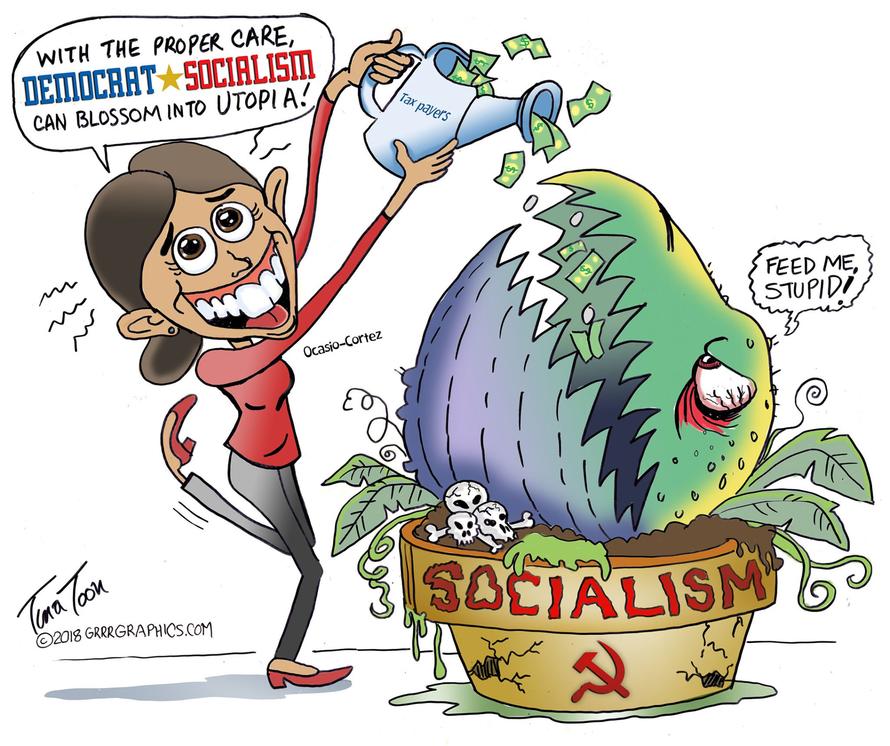
* * *
Politicians, depending on their ideology, can pose simple questions that suggest simple solutions to the problems people face, like these:
-
Should we impose tariffs on imports to save American jobs?
-
Should workers have a say in how companies are run?
-
Should we enact rent control laws to protect tenants from rent increases?
-
Should the government provide jobs for all?
For many people, it’s easy to answer “yes.” The benefits from doing these things are obvious. Who would oppose them?
But it turns out they aren’t such easy questions, since economic reality shows them all to have downsides that just might exceed their upsides:
One of the key elements running through economics is its complexity: there are few decisions that face us that aren’t multivariate and that are free of second- and third-order consequences. Thus we shouldn’t take actions – like imposing tariffs – just because they offer potential benefits, without considering their costs. And we shouldn’t condemn things – like capitalism – solely because they’re imperfect, without taking into account their benefits.
Because economics is just about dollars and consumption, the belief is encouraged that it can be understood intuitively. The truth, however, is that few people are educated regarding economics, and its complexity and ramifications render it far less easy to understand than many people may believe. Yet, while this stuff is complicated, we can all benefit by applying some common sense. You don’t have to be an economist to recognize that if you raise the prices of inputs, it increases the cost of goods and reduces the quantity sold, and if you reduce the rewards for success, you’ll get less effort to create value.
The bottom line is that politicians are able to offer simple economic solutions that have considerable appeal but fail to hold up in real life. Since politics is largely about how costs and benefits are distributed – rather than about increasing aggregate benefits – politicians’ simplistic economic prescriptions mustn’t be swallowed whole.
January 30, 2019
P.s.: Just prior to publication (I can hardly keep up with the developments in this area!) I received a mass email from a candidate for New York City’s Public Advocate, effectively a “public watchdog,” stating the following:
. . . we fought for, and won, a $15 minimum wage, though as we all know, $15 just isn’t enough to support a family in this city. So we need to keep fighting A $30
minimum wage, adjusted with inflation, for New York City government workers and businesses that employ over 75 New Yorkers would be where we start.
This brings to mind the description Winston Churchill used regarding the folly of a nation trying to tax its way to prosperity: “like a man standing in a bucket and trying to lift himself up by the handle.”
* * *
Appendix: The Tax System Explained in Beer
Suppose that every day, ten men go out for beer, and the bill for all ten comes to $100. If they paid their bill the way we pay our taxes (by taxpayer decile), it would go something like this:
The first four men (the poorest) would pay nothing. The fifth would pay $1.
The sixth would pay $3. The seventh would pay $7. The eighth would pay $12. The ninth would pay $18.
The tenth man (the richest) would pay $59. So, that’s what they decided to do.
The ten men drank in the bar every day and seemed quite happy with the arrangement, until one day, the owner threw them a curve ball. “Since you’re all such good customers,” he said, “I’m going to reduce the cost of your daily beer by $20.” Drinks for the ten men would now cost just $80.
The group still wanted to pay their bill the way we pay our taxes. So the first four men were unaffected. They would still drink for free. But what about the other six? How could they divide up the $20 windfall so that everyone would get his fair share?
The bar owner suggested that it would be fair to reduce each man’s bill by a higher percentage the poorer he was, to follow the principle of the tax system they had been using, and he proceeded to suggest the new lower amounts each should now pay.
And so the fifth man, like the first four, now paid nothing (a 100% saving). The sixth now paid $2 instead of $3 (a 33% saving).
The seventh now paid $5 instead of $7 (a 29% saving). The eighth now paid $9 instead of $12 (a 25% saving). The ninth now paid $14 instead of $18 (a 22% saving). The tenth now paid $50 instead of $59 (a 15% saving).
The first four continued to drink for free, and the latter six were all better off than before. But, once outside the bar, the men began to compare their savings.
“I only got a dollar out of the $20 saving,” declared the fifth man. He pointed to the tenth man, “But he got $9!”
“Yeah, that’s right,” exclaimed the sixth man. “I only saved a dollar, too. It’s unfair that he saved nine times more than me!”
“That’s true!” shouted the seventh man. “Why should he get $9 back, when I got only $2? The wealthy get all the breaks!”
“Wait a minute,” yelled the first four men in unison, “we didn’t get anything at all. This new tax system exploits the poor!”
The nine men surrounded the tenth and beat him up.
The next day, the tenth man didn’t show up, so the other nine sat down and had their beers without him. But when it came time to pay the bill, they discovered something important: They didn’t have enough money between all of them for even half of the bill!
And that is how our tax system works. The people who already pay the highest taxes will naturally get the most benefit from a tax reduction. Tax them too much, attack them for being wealthy, and they just may not show up anymore. In fact, they might start drinking overseas, where the atmosphere is friendlier.
* * *
I’ve been waiting a long time for a chance to use this. The numbers may not be exactly right, but the idea is. The unarguable bottom line is that everyone’s view of the fairness of the tax system – like most such matters – depends largely on the angle from which you look at it.

via ZeroHedge News http://bit.ly/2S4VZyi Tyler Durden
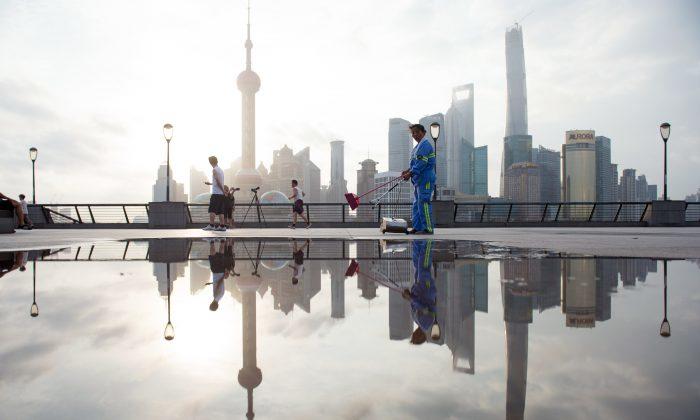
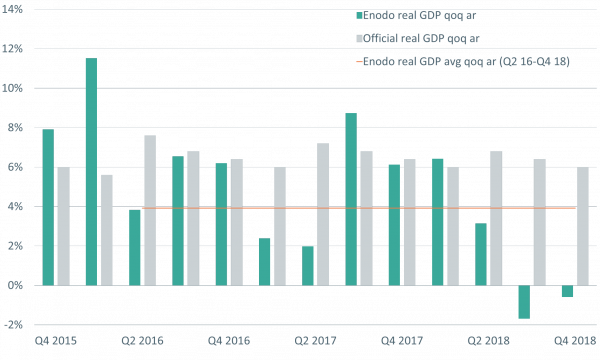
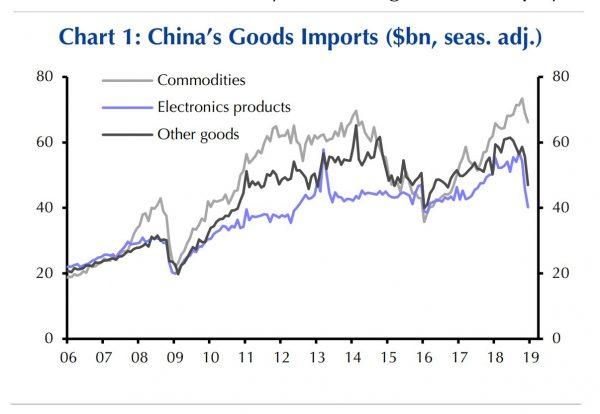
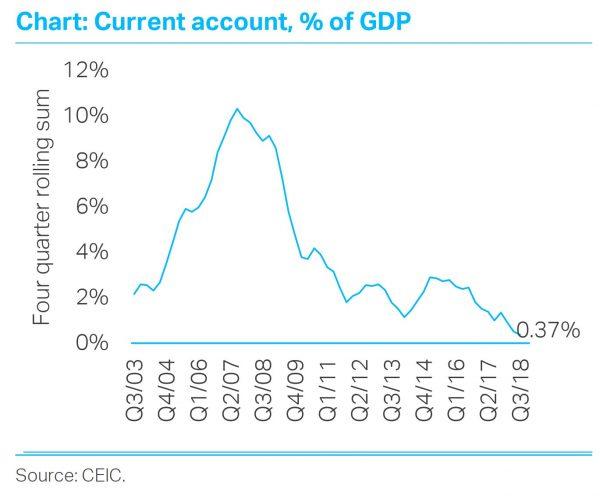
 Sen. Cory Booker’s (D–New Jersey) announcement that he will be seeking his party’s nomination for president has set off a flurry of speculation about the candidate’s ideology, chances of success, and whether or not his
Sen. Cory Booker’s (D–New Jersey) announcement that he will be seeking his party’s nomination for president has set off a flurry of speculation about the candidate’s ideology, chances of success, and whether or not his 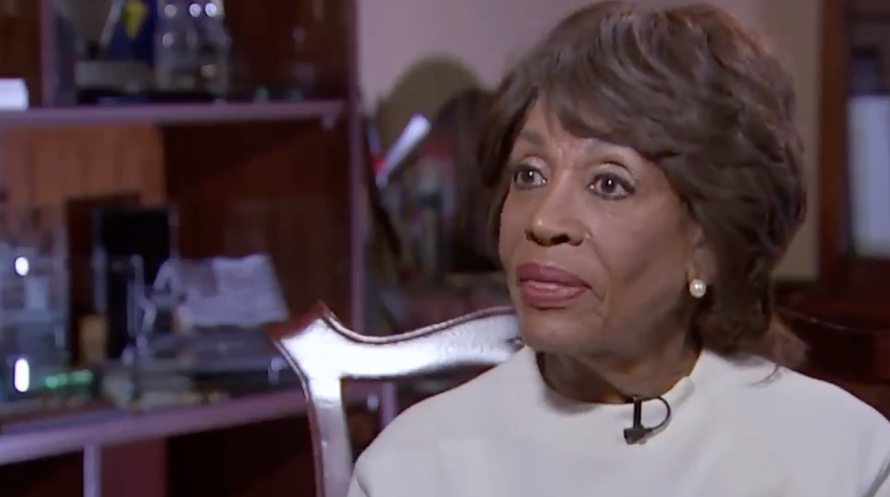

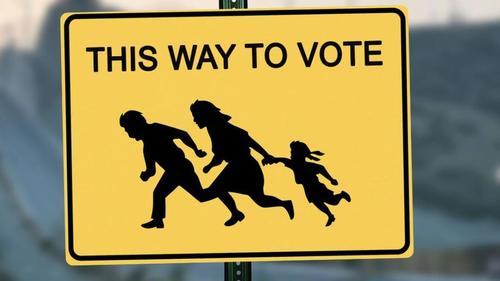

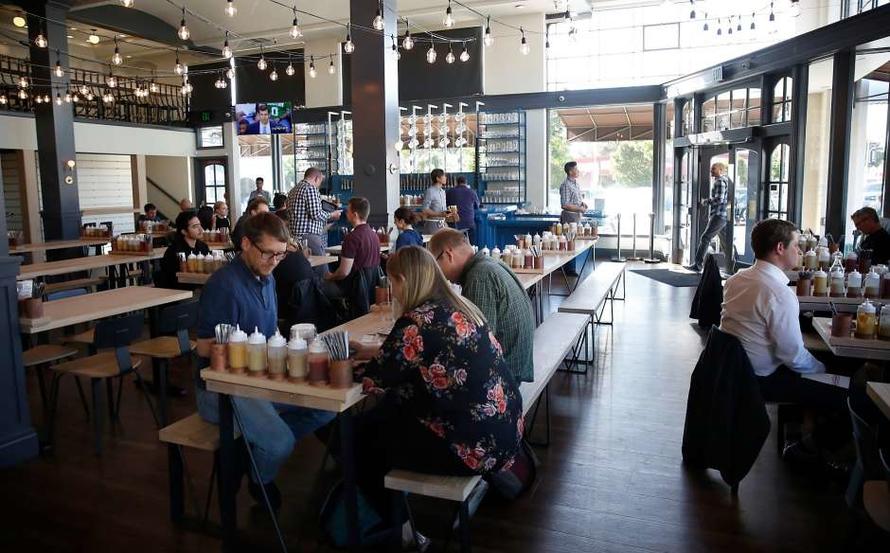
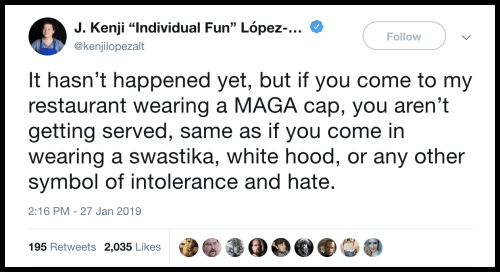
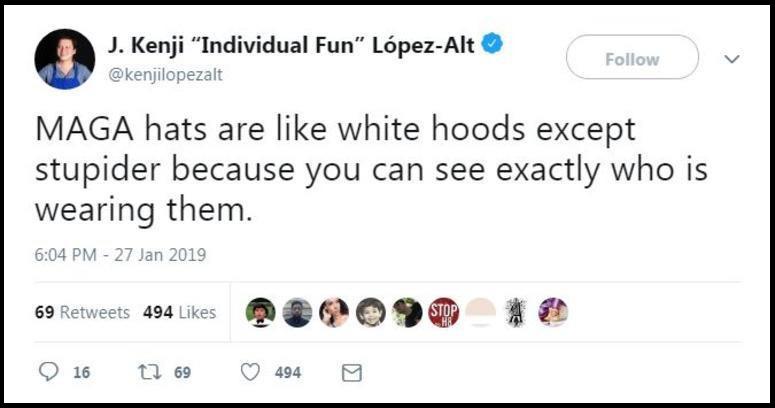
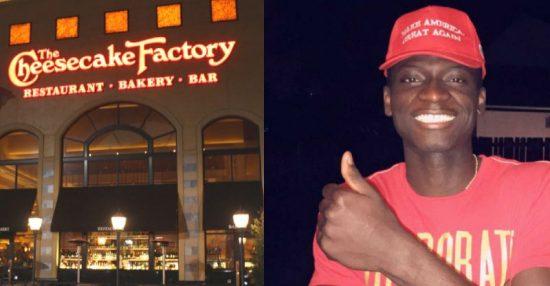


 When Cory Booker first ran for the U.S. Senate in 2012, he was known as a supporter of school choice. Now Sen. Booker is aiming to be the Democratic Party’s presidential nominee. Will he have to run away from education reform to do so?
When Cory Booker first ran for the U.S. Senate in 2012, he was known as a supporter of school choice. Now Sen. Booker is aiming to be the Democratic Party’s presidential nominee. Will he have to run away from education reform to do so?